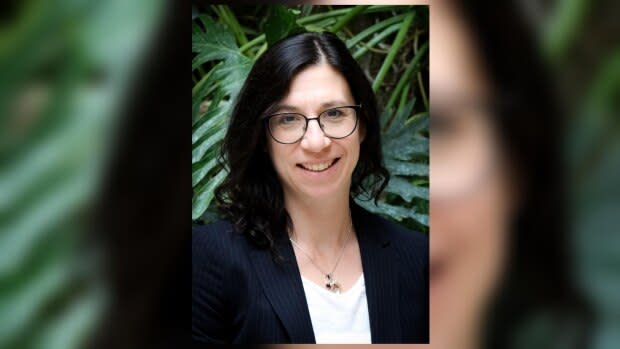Why this professor supported ex-convict Rohan George in his pursuit to practise law
An ex-gang member once convicted of manslaughter who graduated from the University of Windsor's law school in 2017 has just been granted permission to practice this month.
About 15 years ago, when he was 19 and living in Toronto, Rohan George and another person abducted a man from his place of work, forced him into a car, and stabbed him in the back four times as he resisted. The victim was dropped off at a park, where he died.
George was charged with first-degree murder, and eventually pleaded guilty to manslaughter. He was granted full parole in 2009, after serving three and a half years in custody.
The Law Society of Ontario requires all people applying to the bar to declare anything that might impact good character. George disclosed his past, which triggered a hearing last November.
One of the people who vouched for George at that hearing was Jillian Rogin, an assistant professor in the Faculty of Law at the University of Windsor. Rogin said she worked with George as his first-year supervisor at Community Legal Aid.

"He was an an amazing student. I recall guest lecturing in one of his classes and he asked me a question ... I don't remember what his comments were, but I remember saying to the professor afterwards that was one of the best questions I've ever heard from anybody," Rogin said.
"He must have been two weeks into law school and I asked for volunteers to work on a systemic advocacy project that was over and above the regular workload of a volunteer. He and another student volunteered and I worked with them closely on the research and he was very conscientious about his work at the clinic and very diligent."
It wasn't until his third year of studies that he informed Rogin of his conviction, she said, adding the news came as a shock — but didn't change the way she viewed him as a student.
"The first day that he came and spoke to me about it, he came to me because it was time to start thinking about articling," she said. "He wanted to be honest with any potential employer, which he's not obligated to do, but he wanted to be."
"As soon as he told me, I immediately wanted to support him in so many ways ... I can say that I don't recall coming across somebody who had been through the criminal legal system and had such insights into their actions and such compassion."
In extensive submissions to the law society panel, George described how he had turned his life around. A key moment, he said, came when he learned the concept of "active remorse."
Rogin said she had a "very lengthy conversation" with George about how a person can reconcile their past mistakes and contribute to the world in a meaningful way.
I think that term [former gangster] — that's not totally accurate and is there to inflame the public's view. - Assistant law professor Jillian Rogin
"It was a profound conversation. I learned from him. I didn't introduce that concept to him. That's for sure," said Rogin.
Rogin refers to her appearance at George's November 2019 hearing as something which was "worthwhile" for her to do, calling media reports which refer to George as a "former gangster" to be nothing more than hyperbole.
"I think that term — that's not totally accurate and is there to inflame the public's view. So I would consider that negative commentary," said Rogin, adding online comments from the public seem to be "misguided and not based in any kind of reality."
"There were comments that he got a free ride in university and that it was on the taxpayers' dollar ... That's totally false. There's nothing about that that's true."
If anything, Rogin said George's past transgressions may actually benefit him as a lawyer.
"One of the aspects of being a lawyer that's very difficult to teach is the gravity of the responsibility. When you're holding the future of somebody's livelihood in your hands, their liberty, their children, that is something that Rohan already knew coming into law school," she said.
She adds George's answer to what "good character means to him" — which is something many applicants for the law society have to write — is now used as a teaching tool in Rogin's classes about ethical practice.
"My sense of the faculty is that there's overwhelming support for Rohan to become licensed as a lawyer. I believe there were 26 letters of reference from various law faculty and staff at the law school including the dean and the associate dean supporting his application."

In a brief phone conversation with CBC News, George said he's going to take a "pause to reassess and recalibrate" before starting to practice law. He adds it's important for him to ensure he still has the same passion for the profession.
The University of Windsor was the first school that accepted George to its law school, he said.
"As soon as I got the acceptance, I took it and I didn't look back ... I'm forever going to be a Windsorite," said George. "My end goal is to end up in Windsor."


